Why many in Russia are reluctant to have Sputnik vaccine
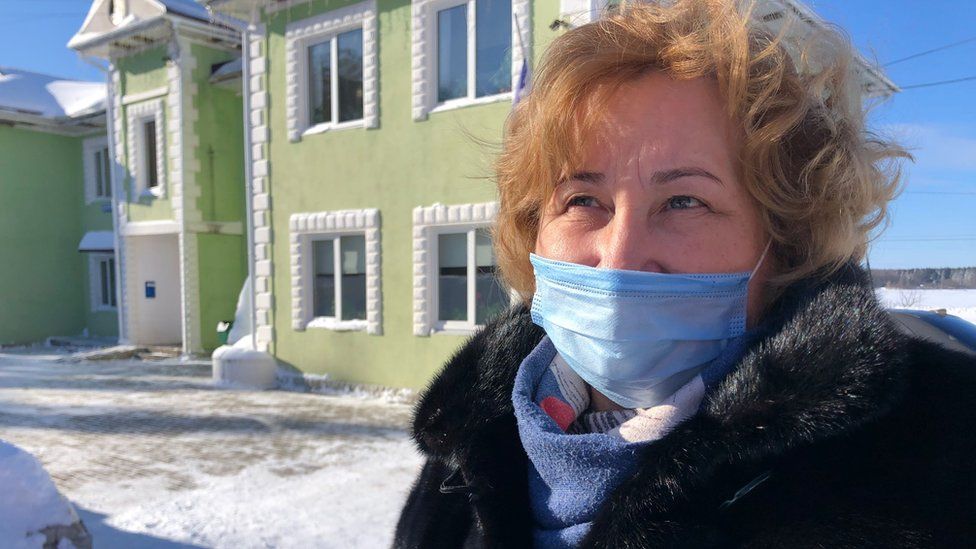
When officials in Sputnik village announced recently that they would be offering Russia's Sputnik V vaccine at the local clinic, just 28 pensioners signed up for a Covid jab.
Interest abroad in the Russian vaccine has skyrocketed since data published in the Lancet medical journal showed it to be 91.6% effective against coronavirus, up there with the world's best.
That endorsement was a political success, as well as a scientific one, for a prestige project loudly trumpeted by Moscow and openly doubted by many in the West.
But while countries from Latin America to Europe are now ordering batches of Sputnik, the rollout in Russia itself has been slow, as people prove deeply reluctant to be injected.
Sputnik for Sputnik
"Everyone scared me that it would hurt, but I didn't feel a thing!" an old-aged pensioner exclaimed, tugging his jumper on after a Sputnik jab in Sputnik village.
Behind him, a nurse leaned in to shout in another pensioner's ear that he should stay off alcohol for a while after his injection.
A couple of hours' drive from Moscow, Sputnik village has a cattle farm, a few identical apartment blocks and no indication at all why it was named after a triumph of the Soviet space race.
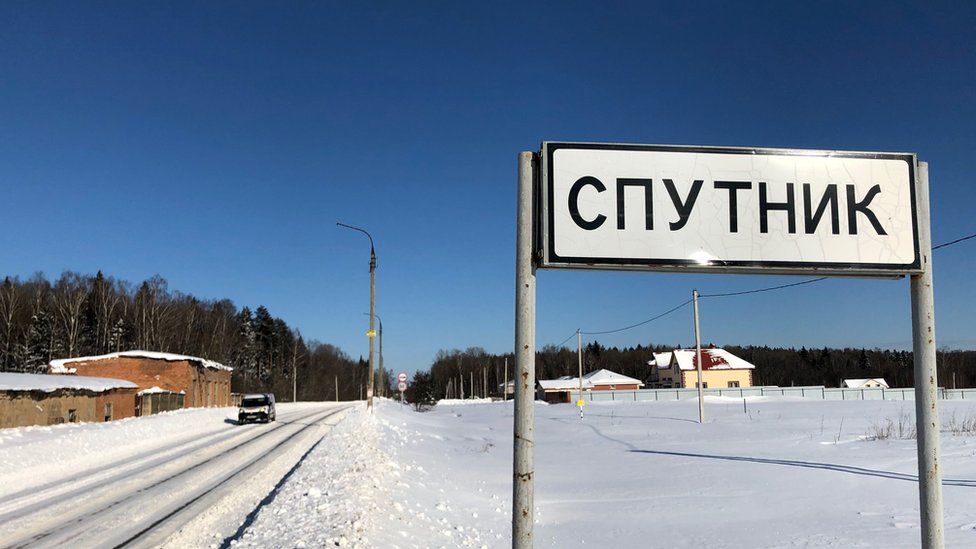
The cosmic link to the vaccine is clearer.
"The Sputnik satellite [in 1957] was a breakthrough and this vaccine is one too!" village official Galina Bordadymova laughed, fur-coated but gloveless in the bitterly cold street.
"We planned for 25 people to come but we got 28, so we're pleased," she insisted, dismissing the suggestion that interest was worryingly low in a population of over 1,000, given the high risk of Covid-19.
Her team had called around older residents, prioritising those most vulnerable to the virus. "Anyone who wanted the vaccine could get it," Ms Bordadymova said.
International interest
Western commentators were initially dismissive, even scornful, of Sputnik V as officials made bold claims on what was then scant evidence. Data from Phase III trials has since shown the vaccine to be effective, with side-effects similar to jabs made in Europe and the US, and interest abroad has surged.
"Even our critics have run out of arguments," Kirill Dmitriev said last month, the head of the RDIF state investment fund that's backing Sputnik.
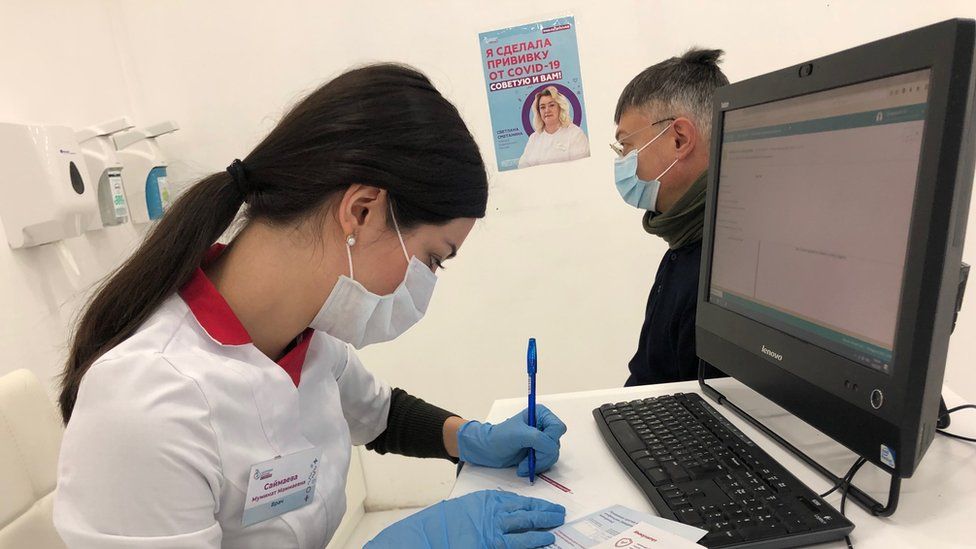
The RDIF says 39 countries have already registered its vaccine and, to Russia's delight, it's even being called upon to help the vaccine-strapped EU.
Hungary was first to approve the Russian vaccine for emergency use and Slovakia has just received two million doses, shrugging off talk of Sputnik as a "tool" of Russian influence.
Covid-19 doesn't care about geopolitics, Slovak Prime Minister Igor Matovic argued.
"You can say it's Russian weaponisation, or the vaccine is just a victim of the political background, but definitely politics is more explicitly represented in the case of the Russian vaccine than any other produced in the world today," Andrei Kortunov of the Russian International Affairs Council notes.
Still, Russia now has so many requests for Sputnik the Kremlin says it cannot handle them all with current production capacity.
The RDIF says it will supply foreign markets from plants abroad, not with doses meant for Russians, but it has given no details yet, nor a timetable.
"For Putin, creating the vaccine was a way to prove to the world that Russia is a developed, major country able to achieve great success in spheres which demand a lot of skill and technology," Tatiana Stanovaya of the R.Politik analysis firm argues.
But EU-wide approval of Sputnik remains a difficult goal as a result.
"When you decide to buy the Russian vaccine, it seems like you invest in or approve of the achievements of Putin's regime or Putin himself," she says.
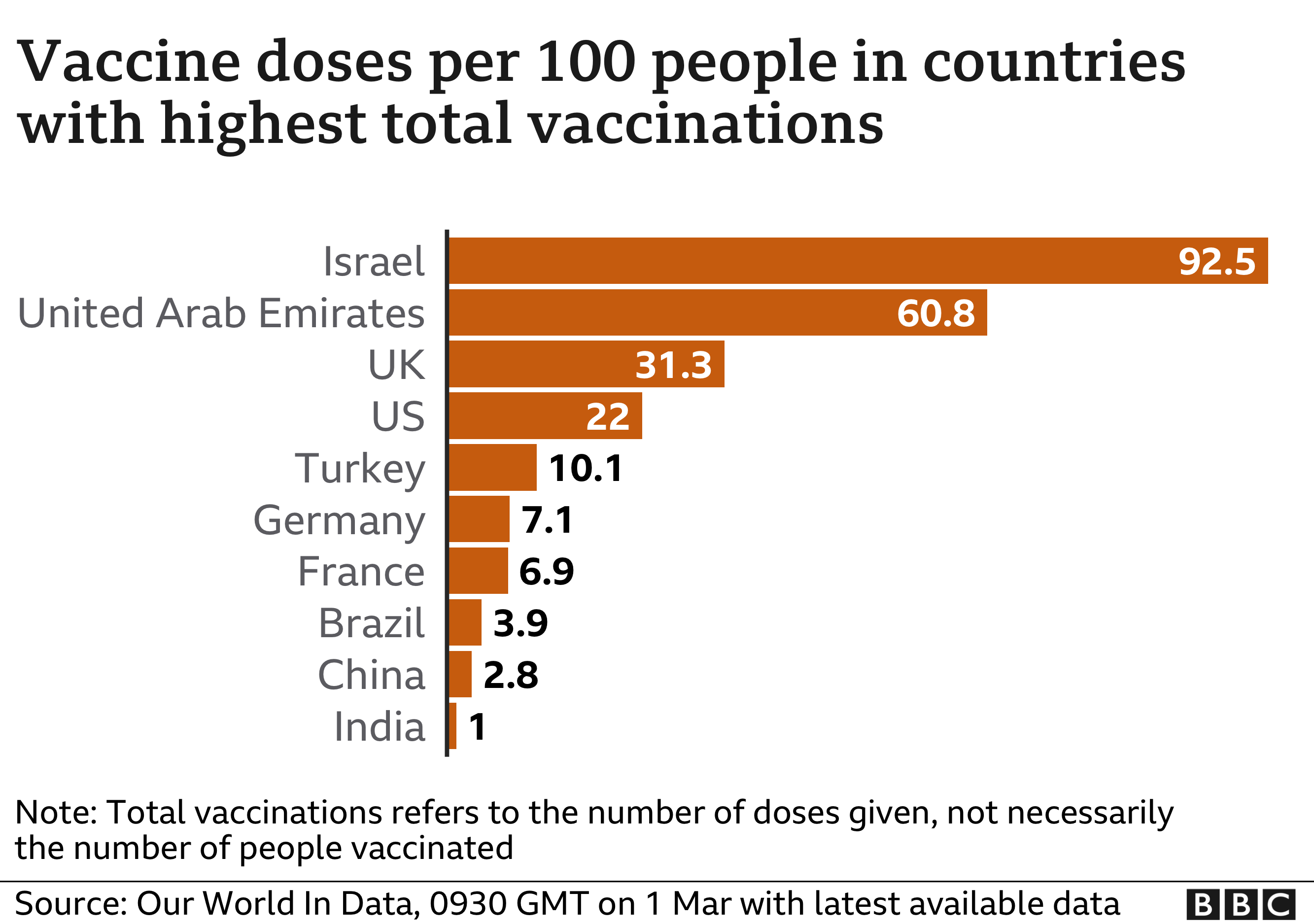

Russian caution
In Sputnik village, there is no such discussion of vaccine politics.
Some residents are nervous of catching Covid: two locals in their 50s died of the virus in the first wave of the pandemic. But villagers seem warier still of getting a vaccine.
A poll by sociologists at the Levada Centre this week found only 30% of Russians willing to receive Sputnik V - down 8% since rollout began, and despite safety data now being public.
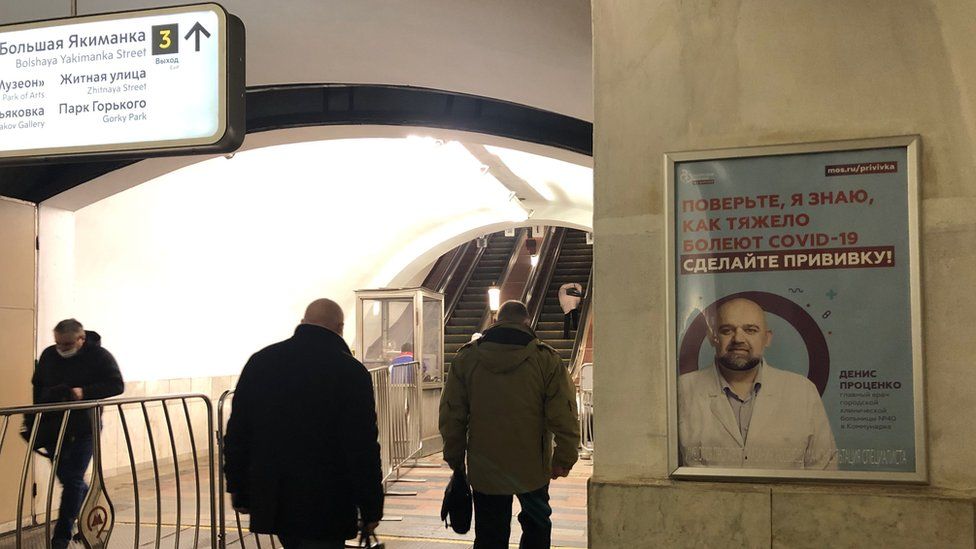
"People are afraid; there's all sorts of rumours about complications," Lidia Nikolaevna reasoned, shovelling thick snow away from her garage door.
She was in hospital with Covid only recently, so her doctor says she doesn't need a jab yet herself.
"Maybe later," Lidia ventured, echoing other villagers. "People say it's fine, but let's see. If everything goes ok, then I think more people will get vaccinated."
"Russians are conservative: they don't trust their own state and they don't trust whatever can come out of this state," Andrei Kortunov says, explaining people's hesitation.
With no new national lockdown, and minimal mention of Covid deaths by officials, they could be forgiven for thinking the danger had passed.
State TV has not been deployed with its full, persuasive force and President Vladimir Putin himself still has not been vaccinated.
So despite remote rollouts like in Sputnik and pop-up vaccination points in city shopping centres, only four million Russians have so far had a Covid jab - far below the health ministry target of 60% of all adults in six months.
The Kremlin insists there is no deficit of vaccine for domestic use.
But its description of production and domestic demand as "in harmony" for "this stage" suggests a reluctance to promote the vaccination campaign too hard, until more phials are rolling down factory conveyer belts.
Heading home from Sputnik village clinic, pensioner Anatoly says getting his injection was no big deal.
"Wham! It was over in a moment," he says, miming a jab in the arm, but he doubts he really needed vaccinating at all.
"I'm healthy! You just have to drink samogon," Anatoly insists, referring to home-distilled, high-strength alcohol.
"I think that'll protect me from Covid too," the 74-year-old laughs, then wanders off across the snow.



No comments